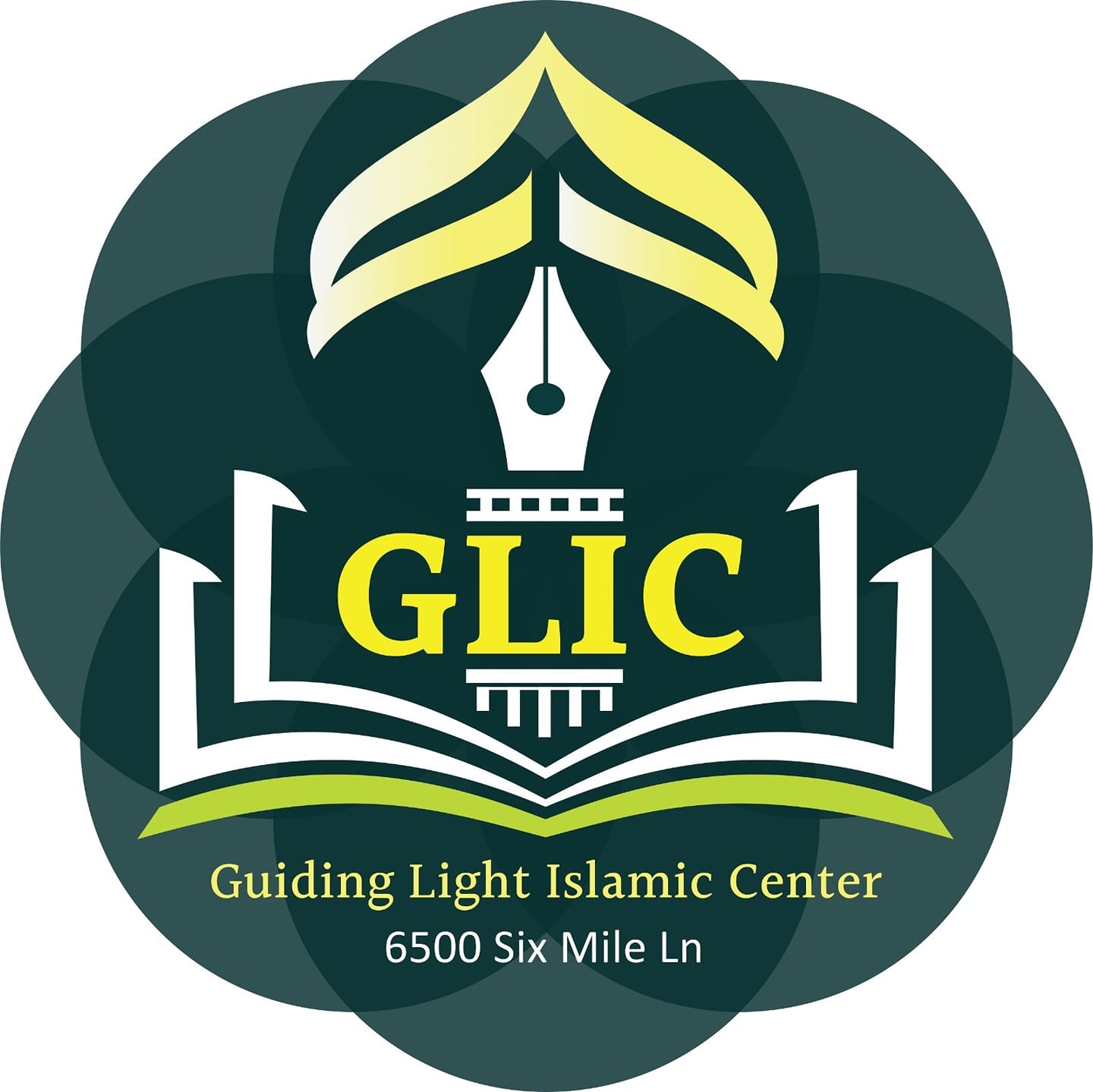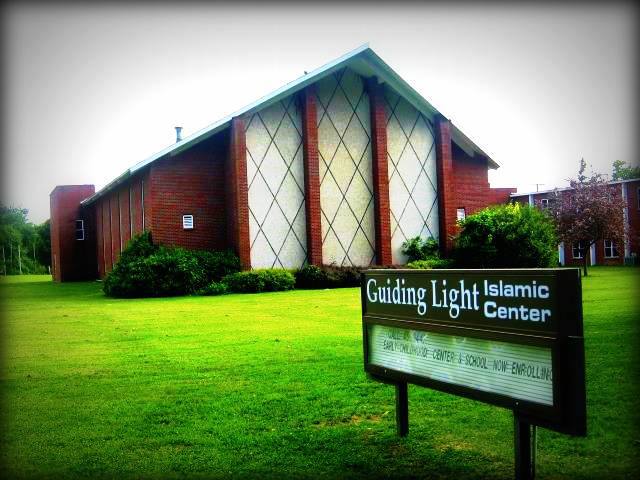
 Tucked away in the Klondike neighborhood, Guiding Light Islamic Center is housed in a former Christian church building. Children and caregivers laugh on the campus playground as cars steadily pull into the parking lot and dusk begins to fall. Tonight, congregation members come with non-Muslim neighbors, friends, and co-workers for the Maghrib, or evening prayer, and a special Iftar dinner for the community.
Tucked away in the Klondike neighborhood, Guiding Light Islamic Center is housed in a former Christian church building. Children and caregivers laugh on the campus playground as cars steadily pull into the parking lot and dusk begins to fall. Tonight, congregation members come with non-Muslim neighbors, friends, and co-workers for the Maghrib, or evening prayer, and a special Iftar dinner for the community.
Folks gather in the entrance hallway and remove their shoes, then proceed into the mosque, where folding chairs are arranged for guests. Guiding Light feels a special call to educate the broader community on Islam, its tenets and practices. Muslim hosts joke and chat with visitors, encouraging them to feel at home. Dr. Youssef Dairi, a medical doctor and Islamic scholar, offers a brief overview of Islam to the visitors gathered.
Muslims are the second-largest religious population in the world. Islam regards the prophet Muhammad, who was born in 570 CE, as the final prophet of Allah (God). It is believed he channeled a fulfilled understanding to the primordial faith revealed through earlier prophets, such as Adam, Abraham, Moses and Jesus. The Qur'an, Islam's pre-eminent holy text, is a compilation of verses that are direct revelations from Allah given to Muhammad by the archangel Jibril (Gabriel). Islam is an Abrahamic tradition, like Judaism and Christianity; however, Muslims profess that Islam and the Qur'an reveal Allah's unaltered truth.
A local scholar in Islamic studies invites and responds to several questions from the visitors gathered tonight. He responds that Muslims acknowledge Jesus as a prophet and believe in his virgin birth. He explains that the traditional coverings for women – for example, the hijab, niqab or burka – are understood by most Muslim women as an expression of freedom to express their faith modestly. He also amicably engages questions about the different understandings of redemption between Christians and Muslims. The speaker concludes by insisting Muslims welcome questions and discourse, finding joy in understanding their own faith better by questioning and exploring with others.
 The time for prayer arrives. The Muslim hosts pass out date fruits and bottles of water; these traditional substances for breaking the Ramadan fast emulate the prophet Muhammad's practice. Women and children leave to pray in another area while guests remain where the men gather. The men make their way reverently to the mihrab, a special niche indicating the direction of Mecca; more folks begin to arrive for prayer. Everyone at the mosque consumes some date or water. As the sweet taste of fruit and refreshing water replenish the bodies of those gathered, the chant of the adhan, or Muslim call to prayer, floats over heads bowed in devotion, restoring the spirit.
The time for prayer arrives. The Muslim hosts pass out date fruits and bottles of water; these traditional substances for breaking the Ramadan fast emulate the prophet Muhammad's practice. Women and children leave to pray in another area while guests remain where the men gather. The men make their way reverently to the mihrab, a special niche indicating the direction of Mecca; more folks begin to arrive for prayer. Everyone at the mosque consumes some date or water. As the sweet taste of fruit and refreshing water replenish the bodies of those gathered, the chant of the adhan, or Muslim call to prayer, floats over heads bowed in devotion, restoring the spirit.
After the Maghrib, hosts and guests make their way down to the cafeteria, where a bountiful buffet is provided. Folks eat and chat together, catching up with friends, hosts answering guests' questions about their experience. As the meal concludes and folks make their way to their cars, the lot is exponentially fuller of vehicles as more Muslim members come to Isha, the night prayer. It is clear the community kept their numbers intentionally small for the Maghrib and Iftar to ensure there was ample space for guests. The night is filled with light: headlights and streetlamps, the glow of the mosque, and bright, reverent smiles.
Find out more about what's happening at Guiding Light Islamic Center: www.guidinglightcenter.org